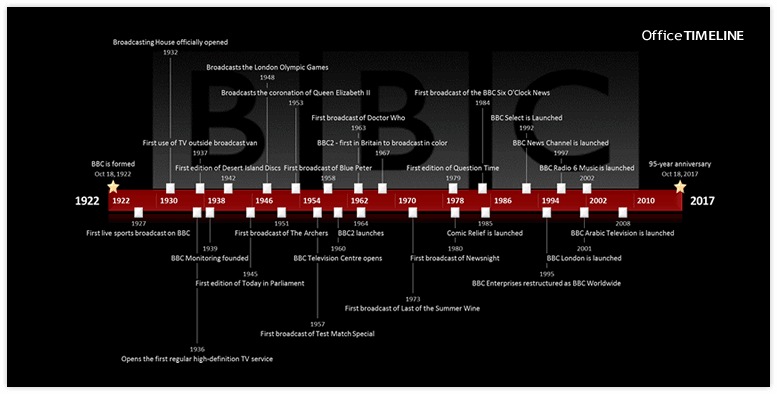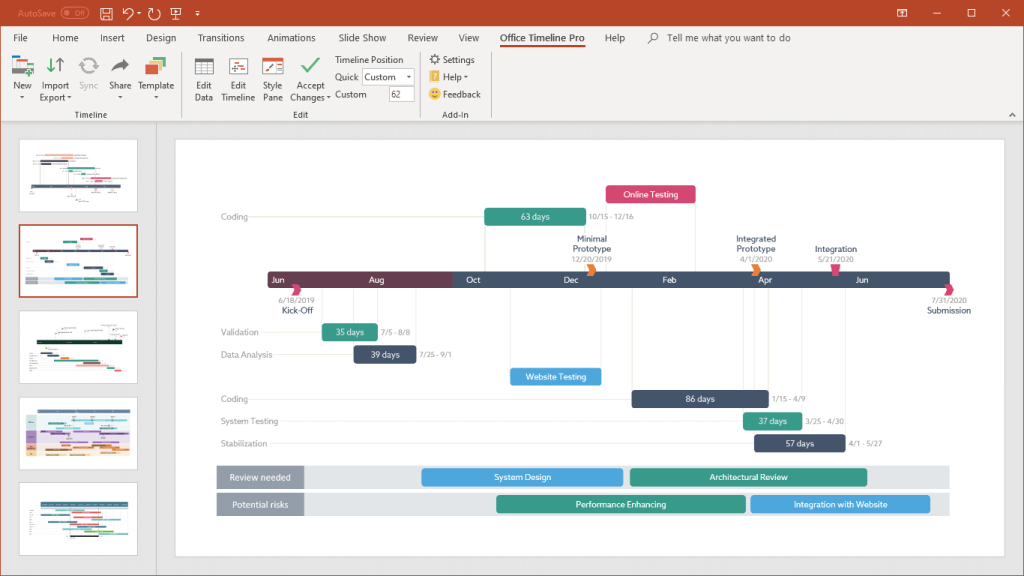
Founded on October 18, 1922, with the mission to “inform, educate and entertain”, the BBC marked its 95th anniversary this year. Starting out with a staff of four including the general manager, the British Broadcasting Company (as it was first named), quickly established itself as a teller of truth and an integral part of British national life.
Today, the BBC is one of the largest broadcasters in the world, and, although it’s been facing struggles and fierce competition from online streaming services, the old titan is still holding up. Let’s take a brief look into the corporation’s history and see how it got where it is today.
The BBC Timeline illustrates some of the important events and major launches in the history of the broadcasting company, from the day it was formed and its first live sports broadcast, to the release of Doctor Who and the launch of the BBC News Channel, among others. The first broadcasters at BBC had quite a lot of challenges to face, not only on account of technical limitations, but also because they were exploring unchartered territory. For instance, drama without visuals was something completely new and hard to imagine at that time – which is probably why the first play written for radio (and broadcast by BBC) was set in a pitch-black coal mine.
The BBC chronology was built using Office Timeline, a PowerPoint add-in that helps users create elegant timelines and other similar visuals in a matter of minutes. The graphic is free to copy or reproduce for personal or public use and can be edited or updated using the Plus edition of the add-in.
Download the BBC Timeline for PowerPoint here.

Turn project data into professional timelines
Get the advanced features of Office Timeline Pro+ free for 14 days.
Get free trial